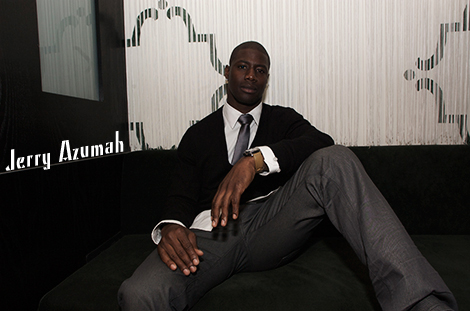
“I’m not that big. I’m 5’10”, 190 lbs. But, I just believe it. My heart is big and it pumps like crazy,” Jerry Azumah says about his out of the ordinary rise to the NFL. “I think that’s what separates me from a lot of people,’ he further speculates. “I just have that work ethic that desire, and that passion to say, ‘I’m going to do it. No matter what, it’s gonna happen.’”
In part two (click here for part 1) of our exclusive interview with Jerry Azumah, the former pro-bowler speaks on how that mentality developed, and how his father kept it alive when Jerry was close to giving up on football. He also dishes out some advice for the Chicago Bears, and explains why his approach to analyzing, much like his approach to his off the field charitable endeavors, is designed to uplift rather than tear down.
Check out the full interview below.
RubyHornet: You just mentioned your work for Comcast, and earlier you talked about the media’s role in presenting athletes. Since you’ve joined Comcast how has your relationship with the players changed? Do you experience any of that, ‘oh, Jerry’s part of the media. That could be a positive cause he knows more of what we’re going through, but also maybe I don’t want to share as much.’
Jerry Azumah: That’s a really good question. I thought about it. When I retired I spoke at the podium for about two hours. Different stations, different radio outlets approached me and said, ‘now that you’re retired, would you mind commentating and talking about the Bears cause I know you’re one of the most liked Bears, and you have a great relationship with everybody.’ So, I thought about it and I kind of went back and forth but then I was like, ‘yeah. I want to do it. I want to flip it in a positive light.’ I’m a studio analyst, so I like to go in, I like to critique and I like to let people understand the dynamics and the thought process behind the actual game and the thought process behind the plays and philosophies and things like that. I know there are some sports announcers that come at guys like, ‘they did this wrong. They should have done this and they should have done that.’ I understand what they’re doing, but at the same time I want to educate. As far as dogging a player, I’ll never do that because these are professional athletes. Professional athletes are there for one reason, because they can get the job done. Otherwise they wouldn’t be a professional athlete. I’m not going to dog a person because he might have made a bad play, or made a mistake because mistakes do happen. Even the greatest to have played the game, whether it’s football, baseball, whatever, have made mistakes. But they’ve also done a lot of positive things. If a guy makes a mistake I’m going to go in, explain the mistake that they made, and explain how they can basically correct it. I’m going to explain what the design was, or what the nature of the whole situation was, instead of just pointing my finger. I noticed that has a better effect, and people have a better appreciation to saying, ‘oh, I never thought of it like that. Obviously Jerry’s been there, he thinks of it like that, so now I understand. Even though he didn’t make that tackle, I understand the philosophy behind it.’
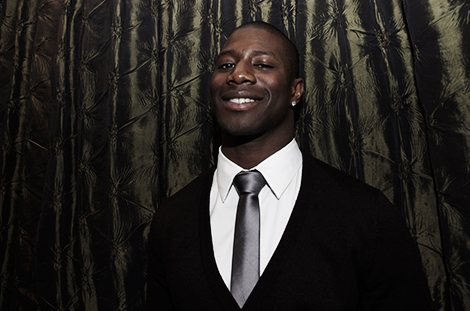
RubyHornet: The draft is coming up in a couple weeks. Do you have insight into where the Bears are going to go, and in your own opinion, who should they bring in?
Jerry Azumah: It’s interesting too because in 2006, the Bears were a powerhouse football team. When you think of the Bears you think of defense. Defense wins championships. When you think of the ’85 Bears, you think of defense immediately.
RubyHornet: I think of the Super Bowl Shuffle.
Jerry Azumah: You think Singletary, Dent, the Super Bowl Shuffle, hahaha…You think of Butkus, and guys that just make an impact. Defensively they haven’t lived up to their potential. I really don’t know why that is. I think a lot of it has to do with injuries. I think a lot of that has to do with the game planning and the scheming. Sometimes they get a little bit out coached in the second quarter and they don’t make the necessary adjustments to correct their mistakes. I think there’s a definite need in the defensive backfield as far as the safety. Mike Brown, he’s been a staple in the game, and for the Chicago Bears, for the last 9 years. Unfortunately, he’s been injured a lot of those years. But when he gets on the football field he still makes an impact, but now he’s gone and those are big shoes that have to be replaced. The last two years Nathan Vasher’s been a little banged up along with Peanut Tillman. They’ve played well, but I’d like to see another cornerback emerge. Corey Graham is emerging, Jermaine McBride is emerging, so it’s good to know that there are good young defensive backs in the wings. I still think they still need to scoop up a veteran to have that leadership role because they are losing Mike Brown.
As far as linebackers, people look at Brain Urlacher and say he’s lost a step, he’s not this, he’s not that. But if you really understand his game and breakdown what he does, he’s more or less a role player now. He’s not making the humongous plays he’s made in the past, but at the same time, he doesn’t give up a lot. People get kind of sidetracked by that, by thinking, ‘why isn’t he making a big play?’ when he’s actually playing really well. He’s just not making the big plays, but he’s still doing his job. Lance Briggs is the focal point of the defense. He’s the type of cat that really goes and makes it happen.
RubyHornet: That’s interesting because I remember a couple years ago Lance Briggs felt that with Urlacher there, he could never be the guy that you just described. Urlacher’s done a good job, like you just said, of switching up how he plays and how they relate to each other and Briggs has been able to emerge.
Jerry Azumah: Brian Urlacher’s still Brian Urlacher. He’s still a force to be reckoned with, but at the same time he draws a lot of attention. He commands a lot of attention. Offensive game plans are geared towards Brian Urlacher and ways to shield him out of every single play. By that, it allows Lance Briggs to come in and basically clean up everything. They don’t really have an answer for both people. Lance is like the ultimate wingman and he knows how to make those plays. If they take Brian Urlacher out of the equation, someone else has to step up and you can always count on Lance Briggs to step up. That’s basically where he’s made his money, that’s where he’s made his mark as the person who steps up when the big 54 gets taken out. He’ll step up and make a play.
And then you look at the defensive line, Tommie Harris is probably one of the best that will ever play the game as far as his quickness and ability. He just has to stay healthy. It brings me back to this health thing. You can be a great team, but if you’re not healthy, you’re just going to fall apart very quick. Tommie is another guy that demands a lot of attention, double-teams will be on Tommie and that frees up Urlacher and it frees up Lance Briggs and things start clicking. With the pass rush, Adewalye Ogunleye, Izzie Adonaje have really stepped up. Alex Brown has really stepped up. He’s pretty much my MVP right now. Two years ago he basically got benched. They were talking about cutting him. He didn’t say anything, he’s worked his a** off and said, ‘you know what? I’m going to be a star on this football team,’ and he’s really shown it and proven it.
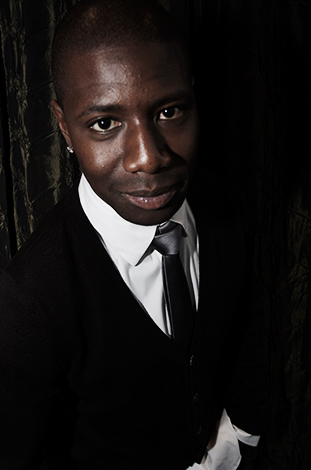
RubyHornet: You have a lot to be proud of on the football field, from setting rushing records, making the pro bowl, scoring the last touchdown at Solider Field. How do those accomplishments compare to such achievements as winning the Brian Piccolo Award, building the Jerry Azumah Performance Center at UNH and your other charitable work?
Jerry Azumah: The achievements that I got in football have been great. They weren’t given to me. I basically had to work my butt off to get that. It’s just many years of dedication and many years of saying, ‘you know what, I’m going to be the best.’ And just saying it over and over to myself and at some point not talking about it and just being about it. Those things just kind of came true and just kind of happened. It was pretty much just hard work and God given talent. Because I was able to do what I’ve done on the football field, I’ve been able to have a little recognition as far as achievements and things like that, but off the field I think I get the most satisfaction. Nobody’s telling me that I need to do this, it’s just something I really believe in. I understand the journey that got me here. So many people and intricate parts have helped me get to this point that I want to help another person achieve that. That’s why the ASAP Foundation is so special to me, because it gives me a sense of pride like I’m helping someone. Building a weight room, I was going to give another scholarship to the college level but I said, ‘you know what, you build a weight room you help 700 student athletes, not just one person.’ That’s where I get that satisfaction, from knowing that I’m helping someone achieve their goal, whether it’s on the football field, in the weight room or just in life etc…I take great pride in things like that.
RubyHornet: When I was a kid, my dad would bring up people like Jerry Rice or Karl Malone, guys that went to really small schools but emerged as the best. He always said, ‘no matter where you are, if you commit yourself to excellence somebody will find you. And you’ll get where you need to be.’
Jerry Azumah: That’s very true.
RubyHornet: Your story makes me think of that.
Jerry Azumah: Yeah…I’ll take it way back. I grew up in Oklahoma, so football was huge. One of my best friends at the time when I was 5 years old, his father owned a barbershop and he used to cut Barry Switzer’s (Oklahoma’s football coach) hair. We used to get tickets to go to the OU games. This was when they had Brian Bosworth and Barry Switzer was the coach and it was just crazy. Right there I thought, I want to do this. I want to try this. So that’s basically how I got into football. I played it on all levels, and I was just faster than everyone on the football field. That’s basically how I excelled. I started to learn the game, the concept, how things come together and the philosophy behind football. I carried that over to high school. We were a powerhouse football team, so I sat on the bench for three years. That was a tough, tough lesson. My father came in and was like, ‘look, I know that you’re on the bench. I know that you don’t want to be on the bench. I know you can be out there making plays cause you’re good and you believe in yourself, but, just have some patience and continue to work hard.’ It was a hard lesson learned because I was this close to saying, ‘you know what man, maybe football’s not the road to go down cause I’m not getting the opportunity.’
Then senior year came, and I just had the biggest chip on my shoulder. I didn’t cry, I didn’t complain about sitting on the bench for three years. I said, ‘you know what, I’m going to work hard, I’m going to go out there and I’m going to make it happen, and I’m going to get a scholarship.’ And that’s what I did. I was a running back, made it happen, got a scholarship to a small division I-AA school and I was probably one of the top 3 running backs in the state. But I was a small cat, I was like 5’7”, 165 lbs, small. So nobody really wanted me, especially not any division 1-A schools. And there aren’t a lot in that area except for B.C. and Syracuse and schools like that. I decided to go to UNH and be a big fish in a small pond and just kind of work my way up. I told myself, ‘once I get there, I’ll never sit on a bench again.’ I just had that attitude and I think that’s what separates me from a lot of people. I just have that work ethic that desire, and that passion to say, ‘I’m going to do it. No matter what, it’s gonna happen.’ I continued to work, work, work, got bigger. My senior year I was 5’10”, 215 lbs. I packed on a lot of weight and I won the Walter Payton award my senior year, which is equivalent to the Heisman Trophy for division 1-AA. Then the NFL kept knocking on the door and I got invited to the national combine. I went there and worked out, and showcased my talent and my ability and people were like, ‘damn, who is this cat? Where did he come from? I know he was a running back, he’s 215 lbs, he’s fast, he’s quick…Let’s see what he can do against good competition.’ I went to the combine, showed the scouts what I could do, and then draft day came and I started getting calls in the 2nd round, in the 3rd round, I started slipping, slipping and slipping. I understand that I was slipping because there were a lot of people that were fighting for me, but there were also a lot of people saying, ‘you know, he’s too small. He went to a division 1-AA school.’ That’s the mentality that the NFL has. I loved it. I was like, ‘man, somebody’s gonna pick me and I’m going to showcase my talents to them and let everybody know why I belong here.’ It just happened. The Bears called me up and said they wanted to draft me. I was like, ‘alright, fine, it’s about time somebody wants me to run with the football.’ They said, ‘well, we like your athletic ability, but we want you to be a defensive back.’ And I was like, ‘wow, a defensive back? Did you not look at my resume?’
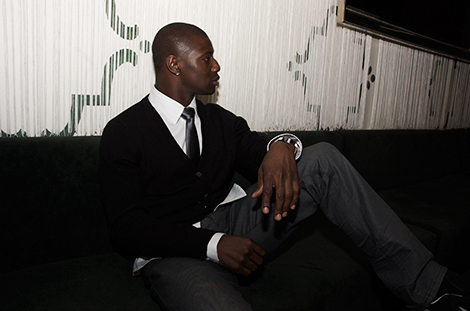
RubyHornet: ‘I broke some records…’
Jerry Azumah: I broke everything at the time, and they wanted me to be a defensive back. I said, ‘well, you could have easily drafted a defensive back instead of drafting me and if you have that much confidence that I can do it, then I have confidence in myself that I can do it. Let’s do it.’ And I got to the league as a defensive back by way of being a running back at a small division 1-AA school. It doesn’t happen like that. It really doesn’t. In the league, they invest time and money and that’s really big, so they want somebody who can make an impact right away and I had basically just changed my whole thought process. Even though it’s football, it’s a completely different thing. I had never done defense, at any level, and they wanted me to do it at the professional level. I remember getting to my first mini-camp and I felt like I was in pre-school while everybody was getting their master’s. It was a tough lesson learned that first year, and I was on that bubble again of saying, ‘I don’t know if I can do this.’ Then my father stepped in again and said, ‘keep working hard. They believed in you and that’s the number 1 thing. You know you believe in yourself so just go make it happen.’ That really hit home. And I said, ‘I’ve had enough, and I’m just going to make the best of this and be successful in the league. ‘ That’s what happened. It worked itself out and it’s been a wonderful journey.
RubyHornet: Just getting back to ASAP, I think that’s a great attitude that a lot of kids in CPS need. They need someone to believe in them.
Jerry Azumah: They definitely need that. When I talk to little kids, I look at them and I throw the stats out there. I used to do this, this and this, but look at me. I’m not that big. I’m 5’10”, 190 lbs. But, I just believe it. My heart is big and it pumps like crazy. I always tell kids I’m living proof right in front of you that you can do it. Don’t think you can’t do it. I did it. I’m right here and I’m telling you about it. I’ve been there, I’ve done it, you can do it too. That hits home. They’re like, ‘damn, it’s true. You did do it.’
RubyHornet: How can people get more involved in ASAP?
Jerry Azumah: I have the poker event, “A Chance of A Lifetime”. It’s going to be at the Hotel Sax May 13th, which is a Wednesday. I wanted to do something different than just a golf event or gala. I wanted to do something fresh, and get everyone involved and I thought the best way to do that was a poker tournament. I know a lot of guys on the team and celebrities here like to play poker and I know I can get them to come out for a good poker event. You can go to ASAPFoundation.com and look up more information about that, or go to my website JerryAzumah.net, and RubyHornet. We’re looking forward to it. I have a great team behind me putting things together, and we have a lot of great sponsors, and right now we’re picking up a lot of momentum and a lot of buzz…I want to basically spread the word and spread the message that ASAP has, which is basically just giving back what was given to me.
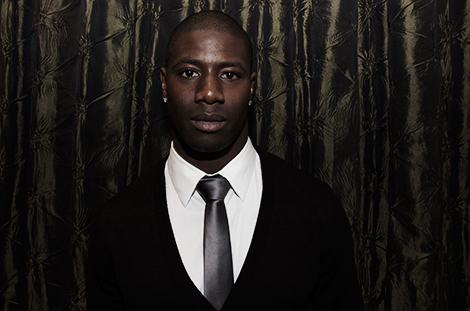
Photography By: Virgil Solis
Tickets for Jerry Azumah’s Charity Texas Hold’em Tournament can be purchased here.
Special Thanks To: NV Penthouse Chicago
